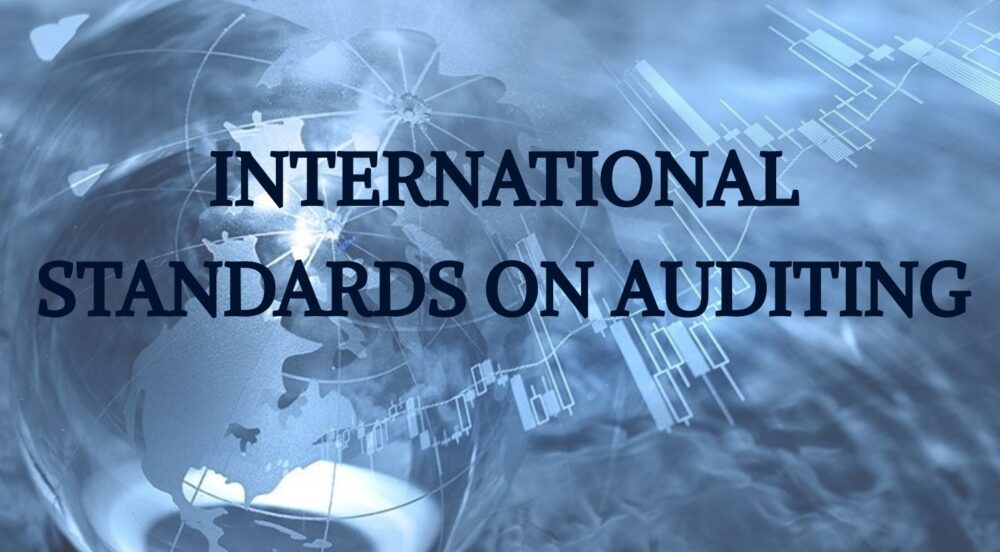International Auditing Standards (IAS) are applied in the audit of financial statements. ISAs are written in the context of an audit of financial statements by an independent auditor. When used in audits of other information, they should be applied as appropriate in the circumstances.
International auditing standards contain:
- Basic principles (rules) and essential procedures,
- Relevant guidance in the form of explanatory notes and other material, including appendices.
Basic principles (rules) and essential procedures should be interpreted and applied in the context of explanations and other material containing guidelines for application. Therefore, in order to understand and apply the basic principles and essential procedures, it is necessary to consider the entire text of the specific standard. The nature of International Auditing Standards requires auditors to behave professionally when applying them. In exceptional circumstances, the professional accountant may judge that it is necessary to deviate from basic principles or procedures of the standard in order to achieve the objective of the engagement as effectively as possible. When such a situation arises, a professional accountant should be prepared to justify such a deviation.
Any limitation of applicability (scope) of a particular International Auditing Standard is clearly stated in the standard itself. International Auditing Practice Statements (IAPS) are published to provide guidance on interpretation and practical assistance to professional accountants ie. auditors in the preparation of International Auditing Standards, as well as in order to improve the good practice of auditing financial statements.
The International Auditing Standards are:
ISA 200–299 GENERAL PRINCIPLES AND RESPONSIBILITY
- ISA 200 General objectives of the independent auditor and the conduct of the audit in accordance with International Standards on Auditing
- ISA 210 Negotiating the terms of the audit engagement
- ISA 220 Quality control of audits of financial statements
- ISA 230 Audit documentation
- ISA 240 The auditor’s responsibility for considering criminal acts in the audit of financial statements
- ISA 250 Consideration of the Application of Laws and Regulations in the Audit of Financial Statements
- ISA 260 Communication with persons authorized to manage
- ISA 265 Communication of deficiencies in internal control to those charged with governance and management
ISA 300–499 RISK ASSESSMENT AND RESPONSES TO ASSESSED RISKS
- ISA 300 Planning the Audit of Financial Statements
- ISA 315 (revised) Identifying and assessing the risks of material misstatement through understanding the entity and its environment
- ISA 320 Materiality in Planning and Conducting an Audit
- ISA 330 The auditor’s response to assessed risks
- ISA 402 Audit Considerations Related to an Entity Using a Service Organization
- ISA 450 Evaluation of Misstatements Identified During an Audit
ISA 500–599 AUDIT EVIDENCE
- ISA 500 Audit evidence
- ISA 501 Audit evidence – Specific considerations for selected positions
- ISA 505 External confirmations
- ISA 510 Initial audit engagements – Initial balances
- ISA 520 Analytical procedures
- ISA 530 Audit sampling
- ISA 540 Auditing accounting estimates, including fair value accounting estimates and related disclosures
- ISA 550 Related parties
- ISA 560 Subsequent Events
- ISA 570 (revised) The going concern principle
- ISA 580 Written Statements
ISA 600–699 USE OF THE WORK OF OTHERS
- ISA 600 Special considerations – audit of group financial statements (including the work of component auditors)
- ISA 610 (revised in 2013) Using the results of the work of internal auditors
- ISA 620 Using the results of the work of experts engaged by the auditor
ISA 700–799 AUDIT CONCLUSIONS AND REPORTING
- ISA 700 (Revised) Forming Opinions and Reporting on Financial Statements
- ISA 701 Communicating Key Audit Matters in the Independent Auditor’s Report
- ISA 705 (Revised) Modifications to the Opinion in the Independent Auditor’s Report
- ISA 706 (Revised) Attention paragraph and other matters paragraph in the independent auditor’s report
- ISA 710 Comparative information – comparative amounts and comparative financial statements
- ISA 720 (Revised) Auditor’s Responsibilities Regarding Other Information
ISA 800–899 SPECIAL AREAS
- ISA 800 (revised) Special considerations – audits of financial statements prepared in accordance with special purpose frameworks
- ISA 805 (Revised) Special Considerations – Audits of Individual Financial Statements and Special Financial Statement Elements, Accounts or Items
- ISA 810 (Revised) Engagements on Reporting on Condensed Financial Statemen



